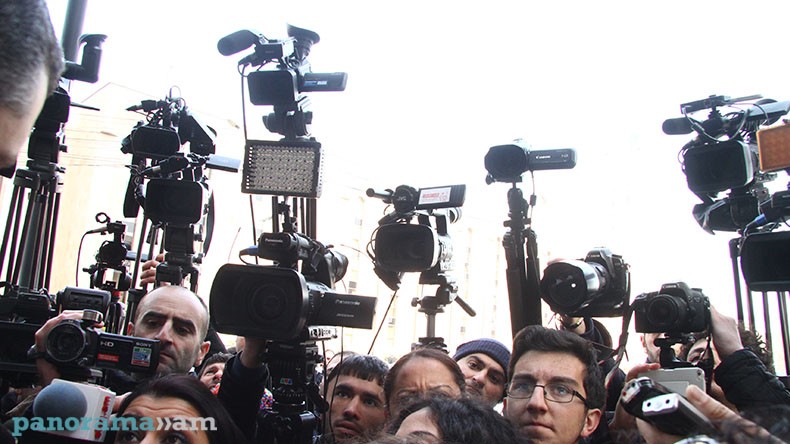
Media Representatives slam restrictions in the RA draft Electoral Code
“Drafting of the new Electoral Code appears to be a secret process. Civil society and Media representatives were interested in how and when the draft was prepared, they wished to participate in the process through making proposals, yet the authorities did not engage them into the process,” Chairman of the Committee to Protect Freedom of Expression Ashot Meliqyan said at the discussion called “Restrictions put on Journalists and Observers in the new Electoral Code.” The event was hosted at Media Center.
“It happened that the document was prepared and submitted to Venice Commission, while our public remained unaware of the whole process,” Meliqyan noted.
''Hraparak'' Daily Editor-in Chief Armine Oyanyan, also present at the meeting, said that people behind the document remain unknown. Meanwhile, Meliqyan expressed concerns that the Electoral Code would be adopted rapidly without even broad discussions.
Meliqyan then reflected on the restrictions on the number and capacities of journalists and observers at polling stations, envisaged by the Electoral Code. He considered them “strange” and lacking clear and acceptable justifications. Armine Ohanyan, on her part, considered those changes ''unprecedented.''
“The problem is that we witness a lack in trust toward electoral processes over the recent years. If authorities wished to increase the trust - an acknowledged major problem - instead of introducing such an absurd provision, they should avoid any limitations,” Ohanyan said, referring to the past practice when journalists were asked for neither badges nor accreditation to cover the voting.
Ohanyan noted that the number of both media outlets and the journalists has considerably increased as compared to the 90s. Therefore, the set number of 8 at a polling station at a time is quite small.
“I do not exclude fake media outlets to be created during the elections, thus leaving journalists from recognized media outlets outside,” Ohanyan speculated.
Newsfeed
Videos






























